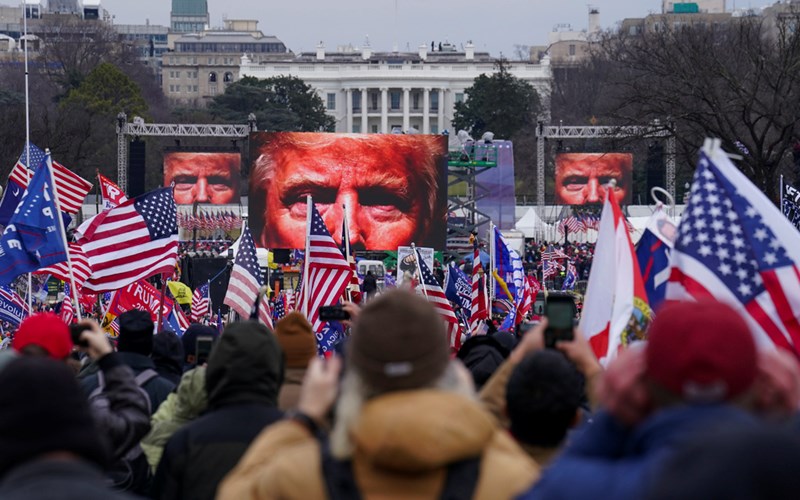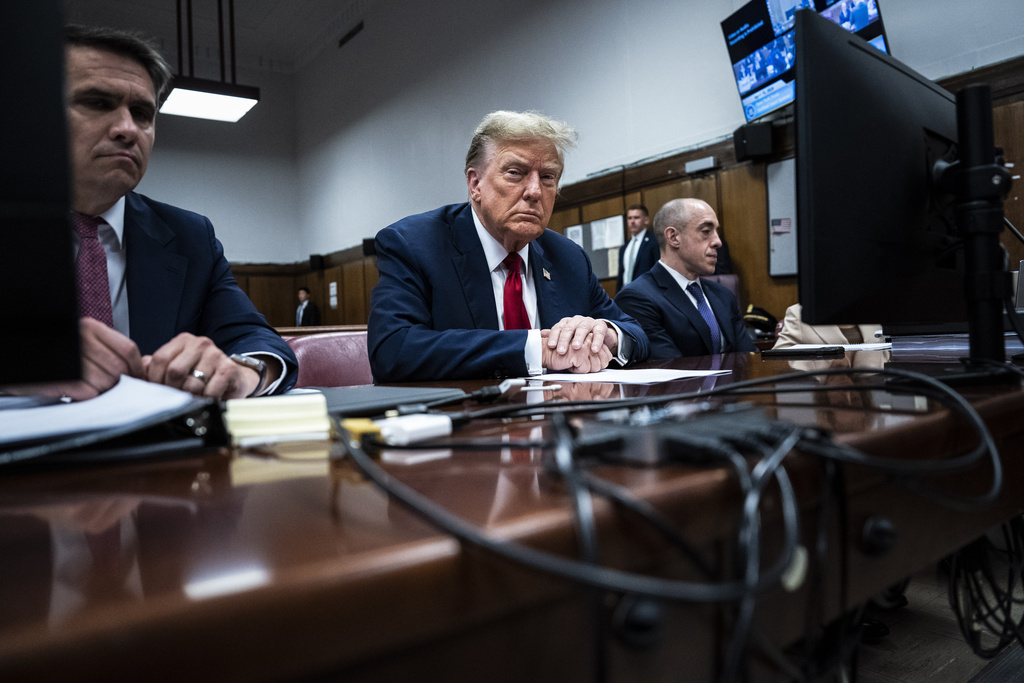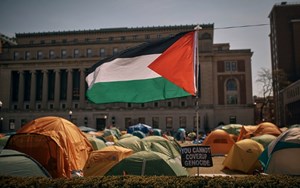The justices are hearing arguments over the charge of obstruction of an official proceeding. That charge, stemming from a law passed in the aftermath of the Enron financial scandal more than two decades ago, has been brought against 330 people, according to the Justice Department. The court will consider whether it can be used against those who disrupted Congress’ certification of Joe Biden's win over Trump.
The former president and presumptive nominee for the 2024 Republican nomination is facing two charges in the case brought by special counsel Jack Smith in Washington that could be knocked out with a favorable ruling from the nation's highest court. Next week, the justices will hear arguments over whether Trump has “absolute immunity” from prosecution in the case, a proposition that has so far been rejected by two lower courts.
The first former U.S. president under indictment, Trump is on trial on hush money charges in New York and also has been charged with election interference in Georgia and with mishandling classified documents in Florida.
The obstruction charge, which carries up to 20 years behind bars, is among the most widely used felony charges brought in the massive federal prosecution following the deadly insurrection.
Some rioters have even won early release from prison while the appeal is pending over concerns that they might end up serving longer than they should have if the Supreme Court rules against the Justice Department.
The high court case focuses on whether the anti-obstruction provision of a law that was enacted in 2002 in response to the financial scandal that brought down Enron Corp. can be used against Jan. 6 defendants.
Fischer's lawyers argue that the provision was meant to close a loophole in criminal law and discourage the destruction of records in response to an investigation. Until the Capitol riot, they told the court, every criminal case using the provision had involved allegations of destroying or otherwise manipulating records.
But the administration says the other side is reading the law too narrowly, arguing it serves “as a catchall offense designed to ensure complete coverage of all forms of corrupt obstruction of an official proceeding,” including Fischer's “alleged conduct in joining a violent riot to disrupt the joint session of Congress certifying the presidential election results.”
Smith has argued separately in the immunity case that the obstruction charges against Trump are valid, no matter the outcome of Fischer's case.
Most lower court judges who have weighed in have allowed the charge to stand. Among them, U.S. District Judge Dabney Friedrich, a Trump appointee, wrote that “statutes often reach beyond the principal evil that animated them.”
But U.S. District Judge Carl Nichols, another Trump appointee, dismissed the charge against Fischer and two other defendants, writing that prosecutors went too far. A divided panel of the federal appeals court in Washington reinstated the charge before the Supreme Court agreed to take up the case.
Sen. Tom Cotton of Arkansas and Reps. Jim Jordan of Ohio, Lauren Boebert of Colorado, Matt Gaetz of Florida and Marjorie Taylor Greene of Georgia are among 23 Republican members of Congress who say the administration's use of the obstruction charge “presents an intolerable risk of politicized prosecutions. Only a clear rebuke from this Court will stop the madness.”







